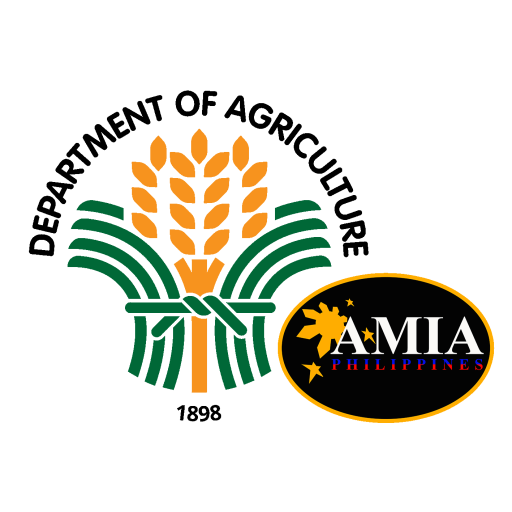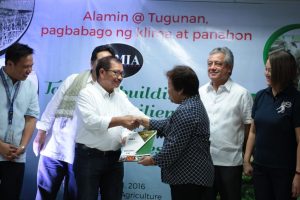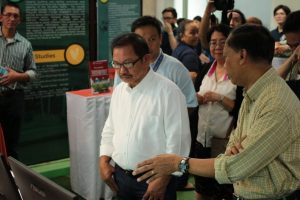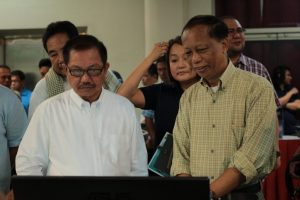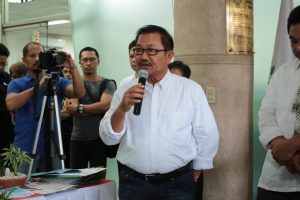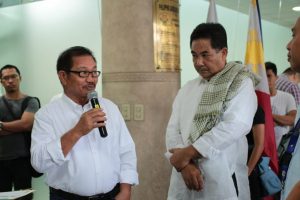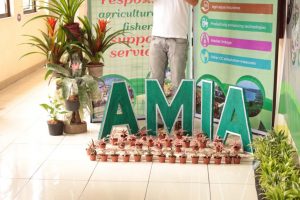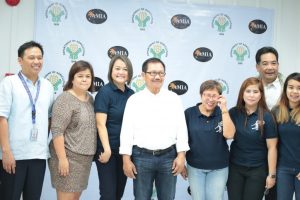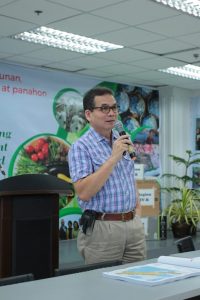QUEZON CITY, Philippines – In line with the celebration of Climate Change Consciousness Week, the AMIA team held an exhibit at the Department of Agriculture building which was opened to the public on November 21, 2016.
With the theme “Alamin @ Tugunan, Pagbabago ng Klima at Panahon: AMIA Towards Climate Resilient Livelihoods and Communities,” the exhibit showcased the various outputs of the AMIA 1 project entitled “Strengthening Implementation of Adaptation and Mitigation Initiative in Agriculture”. These include the National Color-Coded Agricultural Guide (NACCAG) Map, guidebooks for landscape planning and disaster risk reduction and management, and policy recommendations in agriculture research and development, extension, and regulations. The AMIA 1 Project aimed to mainstream climate change in the plans, programs, and budget of the department.
On 1 December 2016, AMIA1 outputs were officially launched and presented to DA Secretary Emmanuel F. Piñol who led the ribbon cutting together with USec. Segfredo R. Serrano (Undersecretary for Policy and Planning), USec. Ariel T. Cayanan (Undersecretary for Operations) and guests, who walked through the exhibit while Dir. Alicia G. Ilaga of the DA Systems-Wide Climate Change Office explained the project outputs.
The opening ceremony was immediately followed by output presentations of the AMIA 1 project at the DA Conference Hall. Dr. Rex Victor O. Cruz, the project leader, gave the project overview whereas component leaders presented the major outputs and key recommendations of their respective components: Dr. Eliseo R. Ponce for Landscape Planning, Dr. Esteban C. Godilano for AMIA Maps, Dr. Cecilio R. Arboleda for Research, Development, and Extension, Dr. Tolentino B. Moya for Irrigation, Dr. Nathaniel B. Diola for Farm-to-Market Roads and Dr. Saturnina C. Halos for Disaster Risk Reduction and Management.
AMIA as the DA’s flagship program on climate change seeks to help farmers reduce climate risks while pursuing resilient yet progressive livelihoods. The AMIA 1 initial project outputs will be used to guide the integrated and multi-stakeholder effort to achieve the implementation of Climate-Resilient Agriculture (CRA) options at the community level, some of the initial activities for which are being carried out in different regions as part of the AMIA 2 and AMIA 2+ projects.
###
